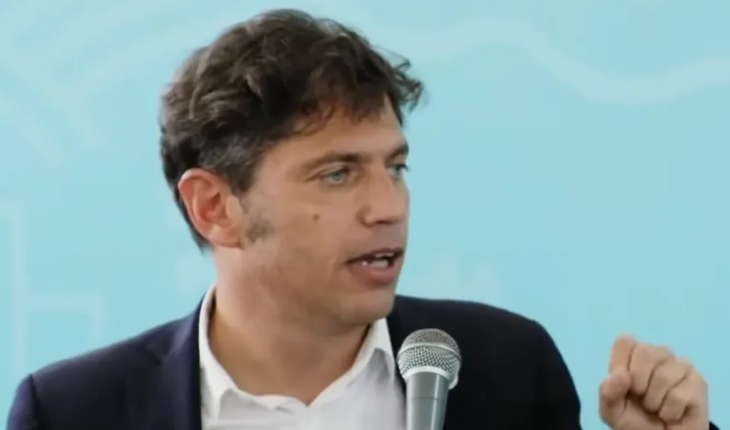The Governor of Buenos Aires, Axel Kicillof, today asked the population to know how to differentiate political spaces that “build homes and invest in health and education” when choosing at the polls from those that favor “banks, timba and capital flight.” “I didn’t come to do party politics or to sow tares or chicanas. There are the facts. The need for housing, Alberti had it for a long time. With the previous government, there was a President, a governor of the province who did not bring them a single house, “said the Governor when leading this morning the delivery of 58 homes in the party of Alberti.There, the provincial president claimed the role of politics in the defense of rights and pointed out that the State “is not a caste” and highlighted the works carried out by his management and contrasted it with the results of his predecessor in office, María Eugenia Vidal. “I don’t have to campaign, just show the facts and summon memory,” he said. Kicillof signed the agreement to create the second environmental park in that municipality together with the ministers of Territorial Development and Habitat of the Nation, Santiago Maggiotti; of Habitat and Urban Development of Buenos Aires, Agustín Simone, of Environment, Daniel Vilar and the mayor of Alberti, Germán Lago.In turn, he asked the people of Buenos Aires to “disconnect from networks and turn off the television and go to see what happened in schools, in hospitals, on the roads” because “these needs of the great majority must be resolved by society as a whole through the State.” Politicians are not all the same, nor is the state a caste. There are politicians who build houses and politicians who do not, who give it to banks, to timba and to capital flight. There are politicians who invest in health, in education,” said the Buenos Aires governor against liberal speeches. In addition, he highlighted the population growth in the province of Buenos Aires and in particular in the municipality of Alberti that revealed the last population census and, after affirming that this growth implies a demand for more housing, hospitals, schools and streets, he questioned that “there are those who say that the State is a disaster that is useless and everything should be solved by the invisible hand of the market.” In that sense, he remarked that “the majority needs that need to have a response through the organized community and the State. It is the State that comes and builds houses, hospitals, the one that comes and builds schools, the one that comes and gives you vaccines, the one that comes to generate equity.” One sees the statistics and realizes that there are three and a half million Buenos Aires residents who go to work in the City of Buenos Aires and many criticize that they are going to attend to their hospitals, but that place is not a municipality is the capital of all Argentines and the 33 public hospitals that they have we build with ours, and they were not built in the last fifteen years,” he said. Likewise, when highlighting the population growth of the suburbs, to which many “went to look for opportunities, work, health that perhaps they did not get in the place where they lived,” he graphed to account for the demands in his district and assured that since his administration is “generating equal opportunities in each town of the interior.” In this context, the governor appealed to Argentine history and the fight of unitarians and federals to once again question the ruling of the Supreme Court of Justice that favored the City of Buenos Aires in the dispute with the Nation for co-participation funds. Wars were fought over the issue of resources and two sides were generated: unitary and federal. We thought it was ancient history that a central place seizes resources to the detriment of the interior, but a ruling came out of the Supreme Court of Justice that took resources from us to give it to the richest city,” he said. From here, from the inside, I tell you that this governor is not going to deliver resources that are ours. It is a historic crossroads. It is important that those who lead the country, Alberto (Fernández) and Cristina (Fernández de Kirchner) and in the province do not forget the interior of the province, “he said.
Axel Kicillof: “I did not come to do party politics or to sow tares or chicanas, there are facts”
March 17, 2023 |





